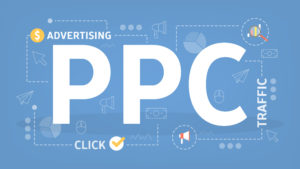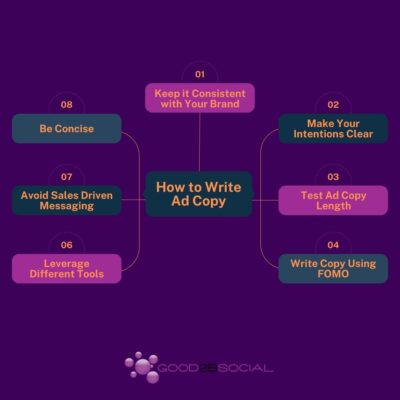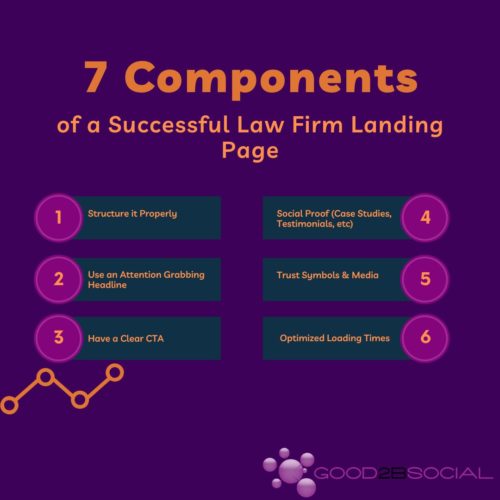
12 Best Practices of PPC for Law Firms
Pay-per-click (PPC) advertising is effective at producing rapid lead generation results for law firms. Unlike SEO, which requires time to gain momentum, a PPC campaign can be set up quickly and generate immediate results. However, there is a science to effective PPC campaigns. Follow our best practices to ensure that your law firm’s PPC campaigns are impactful and optimized to help you generate a better return on your investment.
PPC for Law Firms
1. Direct your law firm’s ads to a landing page; not a homepage!
A carefully crafted landing page for your law firm’s PPC ads can help turn more clicks into leads while keeping your cost-per-click lower. Though it’s tempting to simply direct viewers to a homepage or webpage with general information, doing so can be detrimental to your results. That’s because homepages are designed to quickly relay general information. People who land on your homepage will have a range of options to choose from, with no real direction. That’s a problem because when people click on a PPC ad, they’re looking to take some kind of action.
2. Ensure your landing page structure supports action
Your law firm’s PPC landing page is a little different from a general web page because you are looking to entice a certain activity and not just offer information. You need to make sure your page is set up to encourage such action. We suggest including a headline that matches what was clicked, a bulk of the page devoted to convincing the individual why they should take the action, and then a very obvious call-to-action.
3. Assess your budget and watch out for budget-wasting mistakes
Before starting your PPC campaign, you should assess your law firm’s budget and figure out how much you’d like to spend on this campaign. Remember: campaigns can get expensive without proper optimization. To keep costs as low as possible while still obtaining results, try the following:
- Choose a more specific radius to target, such as a city versus an entire state.
- Schedule ads to run only during business hours for your potential clients.
- Use exact, phrase, and broad match modifier keyword match types to limit irrelevant clicks on your advertising.
- Review your search terms regularly to see what people actually seek and click on. This can help build a negative keyword list as well.
- Upload negative keyword lists that contain terms like “free” or other phrases you’re not interested in being found for.
4. Conduct continuous keyword research
You can conduct research within your Google Ads campaign builder or using third-party tools like Ahrefs Keywords Explorer. Use a seed keyword to add other words and phrases that can make sense to target, along with search volume and other metrics.
Remember to revisit keywords and your negative keywords as time goes on. You can adjust keyword bids for those that aren’t performing well or even pause keywords if need be. You should also be prepared to add more keywords to your negative keyword list as you see irrelevant terms popping up.
5. Use Ad Groups
Ad groups are those that contain one or more ads with similar targets. If you have a few ads that share one or more keywords, you can group them together. Just remember to always have all ads in a group share at least one root keyword. And you don’t want to try and reorganize groups after your ads have already started- this can lead to the wiping of data.
6. Write optimized ad copy
Ad copy should always be properly optimized, as it’s one of your strongest assets for converting users. Always remember to:
- Keep ad copy consistent with your brand voice
- Make the who what when where and why clear
- Test ad copy length as needed
- Write copy that evokes emotion and leverages FOMO (fear of missing out)
- Be concise
- Avoid sales-driven language
- Leverage tools like Grammarly as needed
7. Ensure relevance between paid ad searches and landing pages
This is probably the most important tactic. When people click on your law firm’s PPC ad, they’re ready to see more information on the topic that just piqued their interest. Being taken to a general page with no sign of what just intrigued them is likely to lead to a high bounce rate. If, when reviewing your data, you notice that the bounce rate on pages from ads is high, consider that maybe the messaging on the resulting page and the ad itself is not aligned. Try to make sure that when you click on an ad, it takes the user to exactly what they’re expecting to see based on their search.
8. A/B test with paid traffic
A/B testing is important for any law firm digital marketing campaign and will help drive a higher ROI. Since you only pay when you get a click with PPC, it’s the ideal channel for testing and trying new things at a low budget. Within Google Ads or LinkedIn Ads, for example, you can also test different price points, creatives, etc. Create low daily budgets to try new things, and make small changes over time until your campaign is optimized.
9. Leverage dynamic landing pages
There are a couple of ways to do this. First, you can just create several different ads with unique landing pages. For example, you should have one ad with a resulting landing page for every practice area within your firm. Secondly, you can replace text dynamically on the page so that the page seems more relevant to the ad. The idea is that rather than arriving on a blanket landing page, based on a single campaign or set of keywords, the page will be customized to be even more relevant to the user’s individual needs.
10. Seek out data on your landing pages
There are lots of tools that can help you review and analyze data on your ad performance. Hotjar or FullStory for example, lets you “see” what people are doing on your PPC ads and landing pages. It’s helpful to know when people are scrolling, hovering, and clicking. Understanding this data will help you to see where traffic drops off, issues with your forms, etc.
11. Optimize forms
Forms can make or break your law firm’s digital marketing campaign progress. Having too many form fields, using too many required fields, having too much text, or having the form in a non-optimal placement can all lead to inactivity. In general, forms should be short and to the point and require only a few fields. They should also be above the fold. Make sure to focus on headlines and text just as you would with any other landing page, and leave plenty of white space. This is another area where testing will be your best friend.
12. Focus on landing page experience
The landing page factor is one thing Google uses to calculate Ad Rank, and that influences everything right from your ads’ visibility to the money you need to spend for each click. Just like you do for your website, you should make sure landing pages load quickly, offer original content, are easy to navigate and are mobile friendly. Apply the same UX principles you do to your website on PPC landing pages.
Takeaway:
A smart PPC campaign strategy can lead to plenty of new leads and signed clients for law firms, but it’s important to properly optimize your landing pages to generate the highest ROI. Your landing page is an essential piece of your PPC campaigns. Spend the time to create and optimize unique pages, and you’re more likely to gain more leads and spend less per click. Pay close attention to your page structure, use the data available to you, and keep testing.
If you’d like assistance managing your law firm’s PPC campaigns, contact us for a consultation. We can help you deliver the highest quality traffic and ensure you’re seeing a true return on your investment.
Let’s get started, and finished
Contact us to get started on your Technology Strength Scorecard and energize your business development process.
Contact Us




